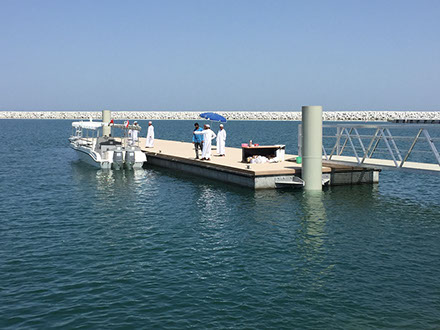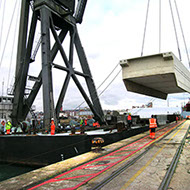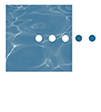In the Media
This talk with Mr. Chris van Asselt from Orsta Marina Systems is part of the interview series of the Holland+You platform. The interviews with companies from Holland who do business in the GCC region and some of their local partners are aimed at inspiring companies that haven't taken the step yet.
“From the moment I set foot in Oman
it felt like home, an unexpected benefit”
What attracted you to this country in the GCC region?
“In 2010 I received a phone call from an Omani company that was looking for a supplier of concrete pontoons. On the phone it wasn’t fully clear what they exactly needed, so I decided to jump on a plane and visit them. From the moment I set foot in Oman it felt like home, an unexpected benefit. We visited the main contractor who wanted to integrate pontoons in a project for the coast guard. It had to be done in less than four months, which was extremely short. Of course we said we could do it. But construction hasn’t even started yet.
Still, we got a taste for it! With the company that gave me the initial call we started looking for other projects together and I visited Oman often in the following years to build relationships. In 2014 the Ministry of Fisheries Wealth awarded us a project for the Barka Fishery Harbour to build three of the 30 harbours along the coast where local fishermen can offload their catch. And at the moment we’re building pontoons for the Musannah fishery harbour and marina. Orsta Marina is the only company worldwide that makes the concrete pontoons in one piece. For this project the pontoons were 6 meters wide and 35 meters long, with a weight of 125.000 kg. Because of the weight and size we make the pontoons on-site. We use local suppliers and local workers.”
“Build a genuine and mutual friendship in which you show people they can trust you”
What is the most challenging part of doing business in the GCC?
“A real challenge for us is the middle management level of mostly English or Indian managers, who keep us from getting through to the actual decision-makers in governments or organisations. When you finally get through you have to invest in building a friendship with the people at the high-level positions. A genuine and mutual friendship in which you show them they can trust you. It gives you the opportunity to conclude agreements at the right level, and tackle common issues such as delayed payments.
Also working with a local partner, local suppliers and local workers can be quite challenging at times. We have been waiting a lot for supplies to arrive; we had to send back stuff that was ordered wrong, and experienced that our upfront payments didn’t last until the end of the project. On the positive side, from the government’s perspective we share our expertise to make an Omani product because we use local supplies and local labour. Omanization is a very important policy at the moment. It means Omani nationals should get hired at all levels of the workforce.
A very specific challenge for our work is the heat in Oman, which makes pouring concrete more difficult. It cures too quickly. We move the work towards the cooler evening hours and we mix ice chips through the cement to keep it chilled.”
What kind of support do you get or expect from the Dutch representations?
“A service that would really help my business locally, but which is not allowed by the Dutch government, would be what I see from other foreign companies: they can rely on their embassies to support them in funding applications at local banks. By just accompanying them at the meeting they put more weight and trust in the application process, which increases the possibility of actually getting a loan or financing. It would be great if our embassy was able to do this.”
back to news



